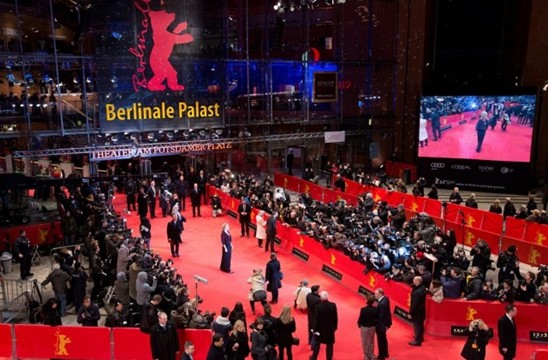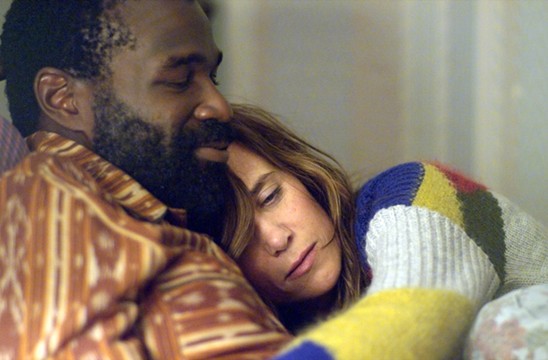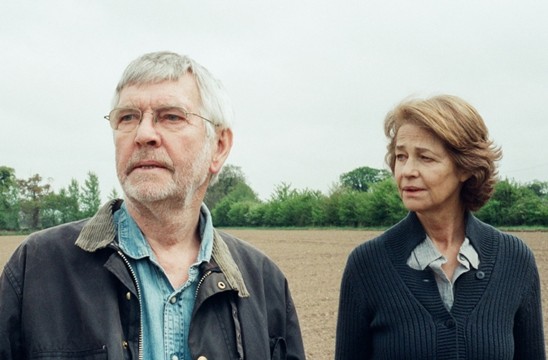
Attending the Berlinale was genuinely exciting this year as the Competition felt compelling. Darren Aronofsky’s jury was due to oversee potential cinematic riches with new films by Jafar Panahi, Wim Wender’s, Isabel Coixet, Peter Greenaway, Werner Herzog, Terrence Malick and British talent Andrew Haigh (Weekend); certainly my four days of watching films was going to be busy. Also, the temperature felt right again unlike Berlinale 2014’s strange early spring weather, this year it was ice cold and definitely suited to staying indoors.
Chilean filmmaker Sebastin Silva, whose previous films Crystal Fairy and the Magical Cactus and Magic Magic have been on the more drug-induced, psycho-sexual spectre side of things (!) premiered Nasty Baby in Panorama. The film landed with hype from the Guardian and strong word of mouth. Silva takes the lead role playing a hip, self-involved, gay conceptual artist living in Brooklyn with his carpenter partner, as they try to have a baby with their friend Polly (played by Kristen Wiig). The film tackles ideas around gay parenting and gay gentrification which is commendable, but its third act plot twist throws audiences off course and into another film entirely. However, the film won the Berlinale Teddy Award and is now on its way round the festival circuit.

Russian filmmaker Ella Manzheeva’s debut The Gulls (Chaiki), programmed in Forum, felt a very hermetically sealed experience. This noir-ish drama involves a dysfunctional marriage and a young married woman’s quest for self-determination on the frosty fringes of modern Russia. Significantly The Gulls is the first film to be shot in the remote republic of Kalmykia (north-east of the Caucasus) for 25 years. More a haunting sensation of image and sound rather than a satisfying narrative, Manzheevai’s nevertheless certainly a filmmaker to watch in the future.
The Festivals Generation 14 plus section consistently delivers as a platform for new directors and original, challenging stories for younger audiences. Italian drama Cloro (Chlorine) explores the world of a 17-year-old girl, staying in an off-season Italian ski resort, who carries family responsibilities on her young shoulders and finds an outlet in her passion for synchronised swimming. It’s another debut feature, this time from NYU-schooled Italian director Lamberto Sanfelice, that finds its strength in a young protagonists sensitive psychological trajectory and the choices she needs to make, as she is forced to choose between swimming competitions with her best friend or caring for her little brother in the wake of their fathers breakdown. Unfortunately the film doesn’t quite hit its emotional mark but there is still plenty to enjoy in its atmospheric aesthetic.

One film that was top of my list of films to see was the only UK film in Competition:Andrew Haigh’s (Greek Pete, Weekend) 45 Years. Written and directed by Haigh, who since the vastly acclaimed Weekend has gone over the pond to work on HBO series Looking, anticipation was high; it’s Haigh’s first crossover film from gay to mainstream content. The drama presents a fresh take on relationships, old age, forgiveness and jealousy,adapted for the screen from David Constantine’s short story In Another Country. Charlotte Rampling and Tom Courtenay play the couple in question with such skill and finesse that they were both equally rewarded with Silver Bears; watching the film, it felt as if Francois Ozon had made a Mike Leigh film. Curzon a re-releasing the film in late August.
Taxi is Iranian filmmaker Jafar Panahi’s third film (This is Not a Film, Closed Curtain) that has been smuggled abroad (possibly in a cake again?), since he was arrested by Iranian authorities and banned from making films. A triumph of freedom of speech and artistic expression, the film deservedly won Panahi the Golden Bear for Best Film. He plays himself, acting as a taxi driver in Tehran, picking up and dropping off an assortment of brilliant characters. Sometime into the film, he collects his punchy niece Hana whose personality is so big she could have carried the whole film herself, and Hana collected the award in Berlin on behalf of her uncle. The film defly mixes socio-cultural and political commentary about quotidian life in Tehran and is equally funny and tragic in parts. Critics have described the film as a a victory for freedom of speech and the art of cinematic storytelling.

Halfway through my time at the Festival, with a couple of great parties under my belt – in particular our Developing Your Film Festival launch at the chic Soho House Berlin and the British Council party in a former East Berlin Ballhaus – I was ready for some serious experimental cinema. Luck came in the form of Guy Maddin’s The Forbidden Room, which arrived in Berlin hot from Sundance to screen in Forum. Maddin’s films have been described as post-modern phantasms; they are playful, high camp,complex and pay exquisite homage to silent cinema.
In The Forbidden Room, Maddin and his co-director Evan Johnson have forensically gathered fragments of information about lost films from the silent era, and have set about reimagining them into a dark subconscious collage for fresh eyes.The film is frenetically paced and feels long at a whopping 130 minutes; there is no breather and in fact the film feels like super-Maddin, more Maddin than Maddin,possibly because of the co-direction with his former student Johnson. Amultitude of characters flit in and out including Udo Kier, Charlotte Rampling, Geraldine Chaplin and Mathieu Amalricto name a few. Perhaps the film is best read as an alternative history of lost silent cinema and is most definitely worth watching on multiple viewings, simply to hear Mathieu Amalric’s pronunciation of the word Chihuahua.

